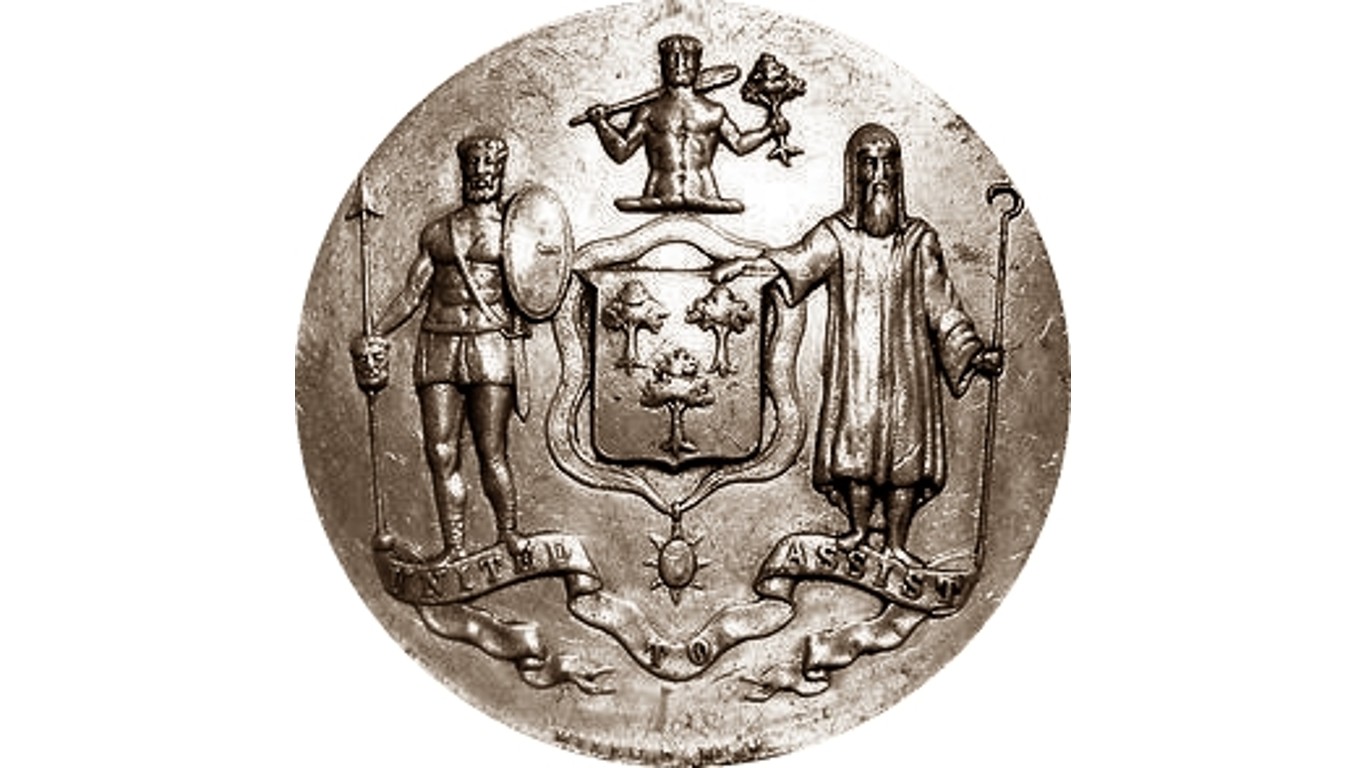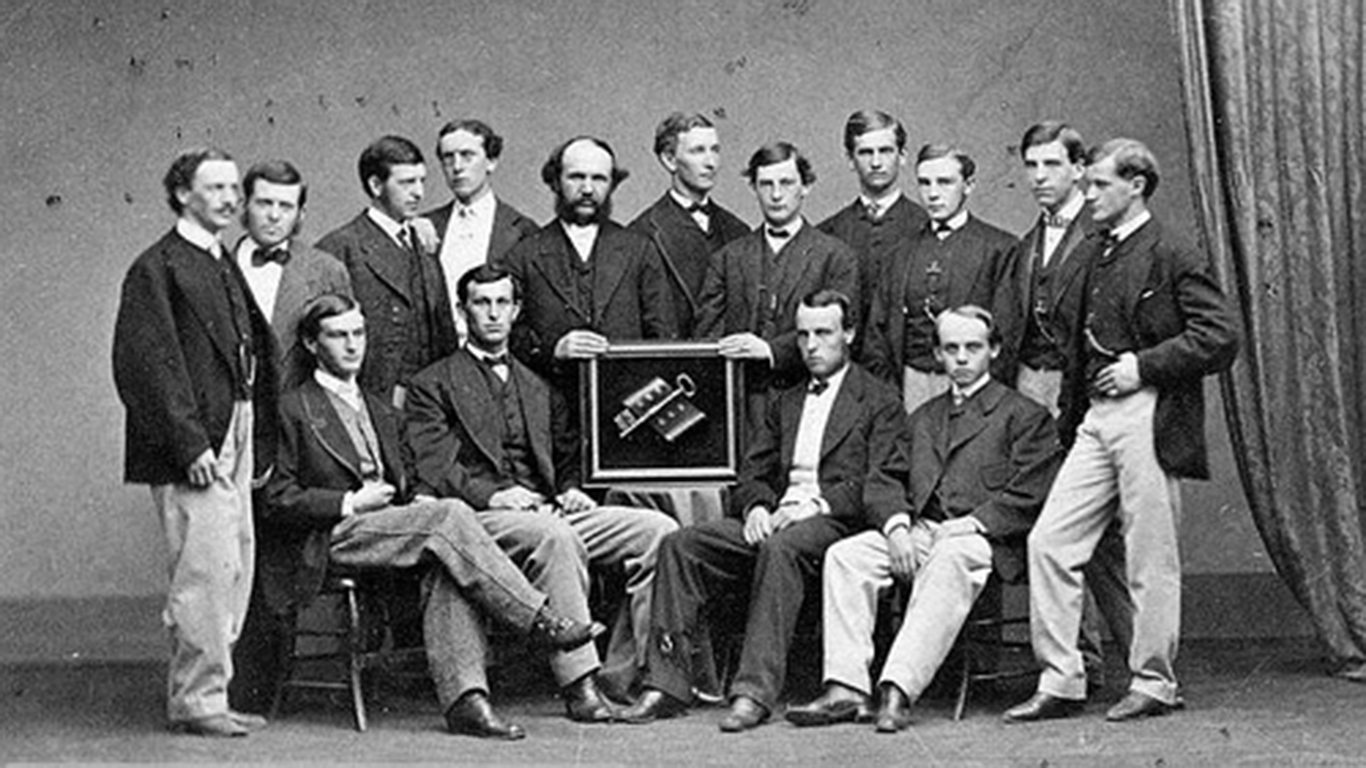
Secret societies have captured the imagination of the public for centuries. Many of these groups are thought to be ancient, mysterious gatherings of powerful men who get together and tip the balance of world power in their favor.
These organizations, which have developed their own rituals and require membership oaths, exist for numerous reasons and have popped up over the centuries. Not just anyone can be a member of these groups. Many restrict admittance based on gender, religion, or occupation. Some seek power for their members, while others are dedicated to charity. Whatever their purpose, these organizations are thought to have significant influence on the outside world, largely because of the powerful people known to be members.
There are secret societies whose members have wielded considerable influence and power that are very real and still operate to this day. Freemasons are well known worldwide, with an estimated 2 million members — more than 1 million of whom are in the U.S. The group has included influential figures such as George Washington, Ben Franklin, J. Edgar Hoover, Benedict Arnold, and more.
Though secret societies likely make people think of old men sitting over grand wooden tables, the group that may be able to claim the most influential alumni in the U.S. is made up of college students — here are the hardest colleges to get into in every state.
24/7 Tempo reviewed historical records and media sources to determine the most powerful secret societies still in existence today.
Click here to see the most powerful secret societies still in existence today
Perhaps the group that pops into most people’s heads when they hear the words “secret society” is the Illuminati. However, the actual Illuminati, formed in Germany in the 18th century, only existed for a few years before disappearing. The legend of the Illuminati as an all-powerful secret order, which includes famous people like Beyoncé, comes from Playboy magazine.
Two writers for the publication sent fake letters supposedly from readers to the magazine to stir up public fervor about the Illuminati’s role in society, and those falsified letters are the reason people believe the group is still in power today — or maybe that’s just what they want us to think.
Many secret societies focus more on helping the world than its members. Groups like the Odd Fellows and the Seven Society have stated missions to help those in need. Other organizations, such as The Loyal Order of Moose and the Ancient Order of United Workmen, are made up of working class people and serve as a union of sorts, advocating for their members’ interests and helping them obtain health or life insurance.
Secret societies date back hundreds of years. One of the oldest examples is the Knights Templar. The group of crusading warriors, founded in 1118, had the stated mission of protecting Christian pilgrims and defending the Holy Land against Muslim armies. The Knights Templar disbanded in the early 14th century, but many secret societies still aim to promote its religious values.
Though Opus Dei was vilified in the film “The Da Vinci Code,” the Catholic organization’s stated goal is to encourage people to be “close to Christ, and making Him known to others.” Other groups like the Ancient Order of Hibernians work to preserve and defend their religion.
There is still much we don’t know about these societies, given their secretive nature. In fact, there is always a chance other influential groups were omitted from this list because their secretive nature has kept them out of the public eye.
1. Ancient Order of Hibernians
> Founded: 1836
> Mission: Protecting Catholic churches from anti-Catholic forces
> Well-known members: John F. Kennedy, Fulton Sheen, Pat O’Brien
The AOH is the oldest Irish Catholic fraternal organization in the United States and was established to shield Catholics from bigotry in the U.S. in the 19th century. The organization, whose members include John F. Kennedy, traces its roots to secret societies created in Ireland more than 300 years ago to protect Catholics from British oppression.
[in-text-ad]

2. Ancient Order of United Workmen
> Founded: 1868
> Mission: Providing financial protection for working class people
> Well-known members: N/A
The Ancient Order of United Workmen was formed as the Industrial Revolution was changing the lives of the working class. The fraternal organization was created to provide financial assistance to working people, such as cash for burial services, and resolving differences arising between labor and its employer.
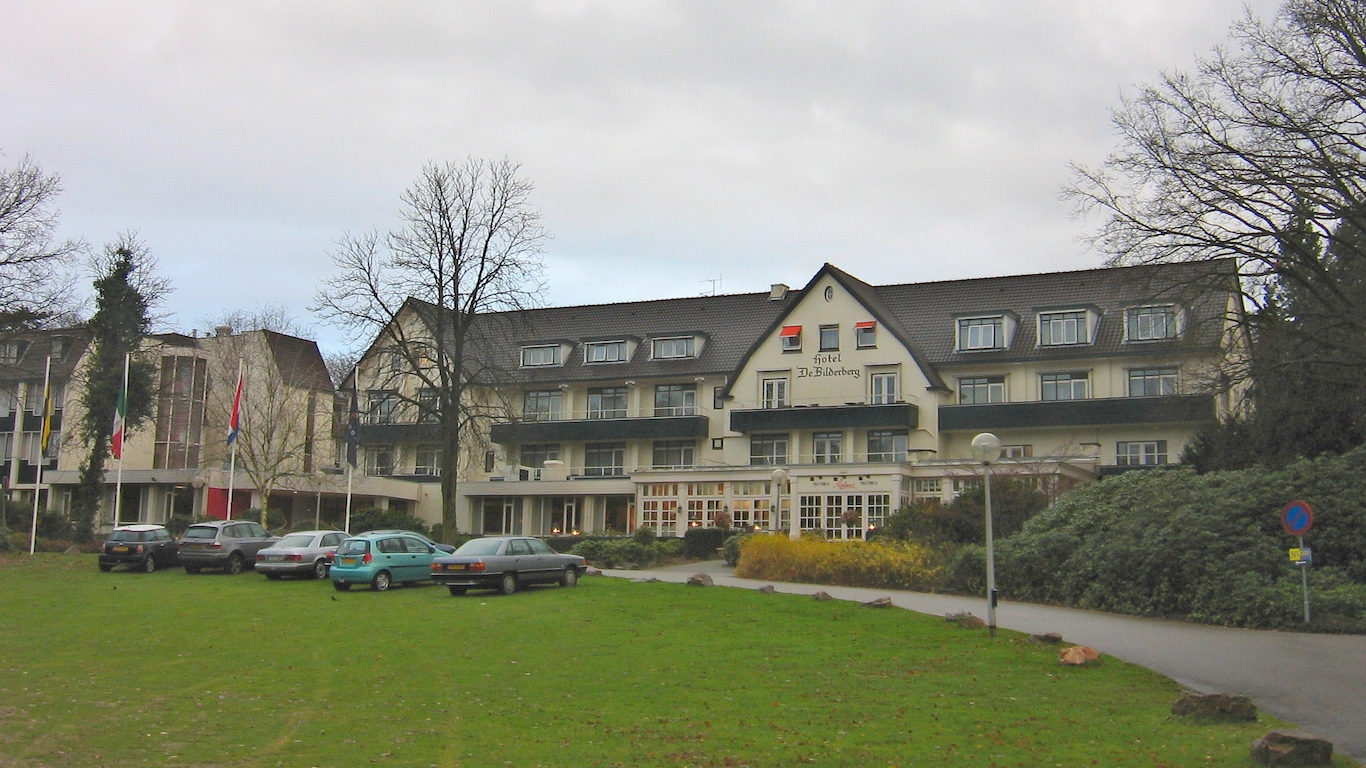
3. Bilderberg Group
> Founded: 1954
> Mission: Create “an aristocracy of purpose,” Atlantic Ocean alliance
> Well-known members: Bill Clinton, Bill Gates, Prince Charles
The Bilderberg Group was formed to create dialogue among political leaders, academics, and industry executives. Its explicit purpose is to ensure cooperation and harmonious relationships between North America and Europe. Participants in the meetings are free to use information gleaned from the event, but the identity of speakers and participants remains secret.
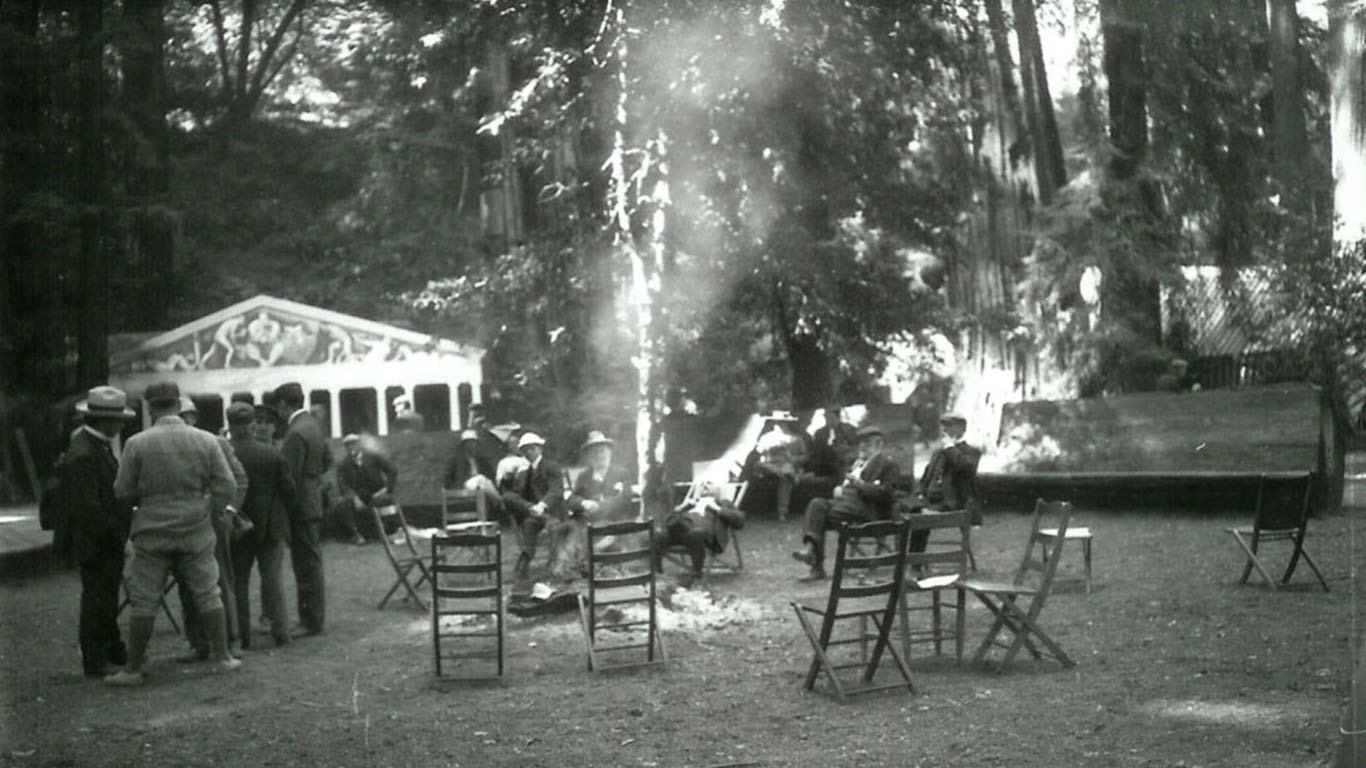
4. Bohemian Club
> Founded: 1872
> Mission: To escape uncivilized interests
> Well-known members: Presidents, musicians, oil barons
The Bohemian Club is a group of the rich and the powerful who meet at the famous Bohemian Grove in late July. The grove is located in northern California, and members stay in tents and cabins and informally discuss the issues of the day. Because of the many powerful people who meet there, it’s rumored that the retreat is where the elite go to decide the direction of the U.S. However, it is likely just a place to relax and drink.
[in-text-ad-2]

5. Freemasonry
> Founded: 1717
> Mission: Fraternal friendship
> Well-known members: George Washington, Richard Pryor, Benjamin Franklin, Voltaire, Harry Houdini
Since its founding, freemasonry has been shrouded in mystery and mystique. Its members have been accused of seeking a world order. Those claims have never been founded on any evidence, and freemasons say on their website that “freemasonry is not and never can be a replacement” for faith, family, and occupation.
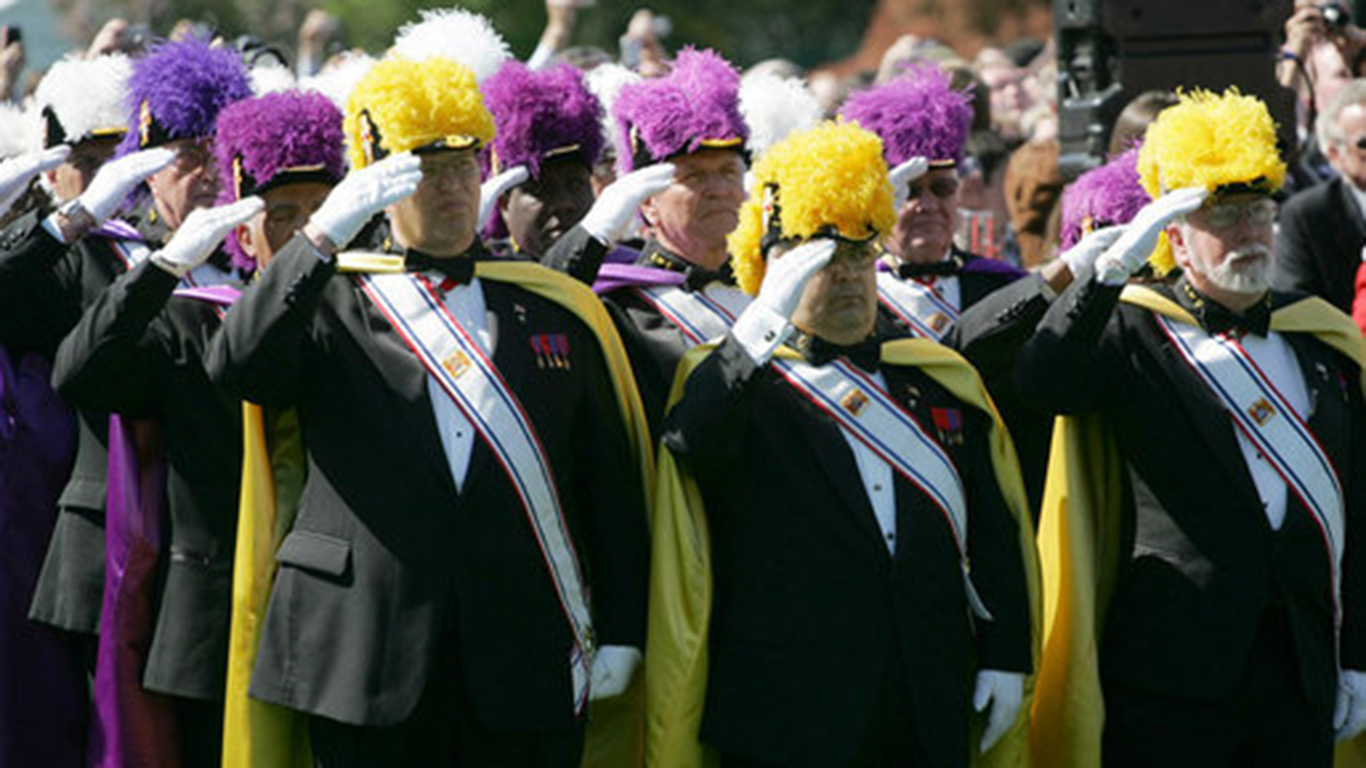
6. Knights of Columbus
> Founded: 1882
> Mission: Catholic fraternal organization
> Well-known members: Mike Ditka, Floyd Patterson, Jeb Bush
The Knights of Columbus, named in honor of the explorer, is the largest Catholic fraternal organization in the world with 1.9 million members on three continents. It was founded on the tenets of charity, unity, and fraternity. The organization focuses on issues affecting Catholic life. The knights advocated for tolerance of African Americans and Jews in the early part of the 20th century but have been recently criticized for funding efforts that oppose same-sex relationships and gay civil rights.
[in-text-ad]

7. Knights of Maccabees
> Founded: 1878
> Mission: Provides social interaction and aids society
> Well-known members: N/A
The Knights of Maccabees were named after the Jews who rebelled against the oppressive Seleucid Empire in the second century B.C. The group was originally formed in Canada to help provide low cost life insurance for members. More recently, the Knights of Maccabees, mostly active in Michigan, have taken a position against consumerism and emphasized greater interaction within communities.
8. Knights of Malta
> Founded: 1048
> Mission: Nobility of spirit and conduct
> Well-known members: Nelson Mandela, Frank Sinatra, Henry A. Kissinger, Frank Capra
Among the most storied of the secret societies, the Knights of Malta was founded to care for those making the pilgrimage to Jerusalem, regardless of religious faith, and were given the responsibility by the pope to defend Christians going to the Holy Land. The organization numbers more than 13,000 members today and sponsor charitable endeavors in 120 countries.

9. Knights of Pythias
> Founded: 1864
> Mission:Fraternal order based on friendship, charitable works
> Well-known members: Franklin Roosevelt, William McKinley, Warren G. Harding
The Irish poet John Banim wrote a play based on the friendship of ancient Greeks Damon and Pythias and from that work the organization began. Members take a vow of friendship on a Bible given to founder Justus H. Rathbone by his mother. Rathbone believed the principles of the group could help heal the nation’s wounds after the Civil War.
[in-text-ad-2]
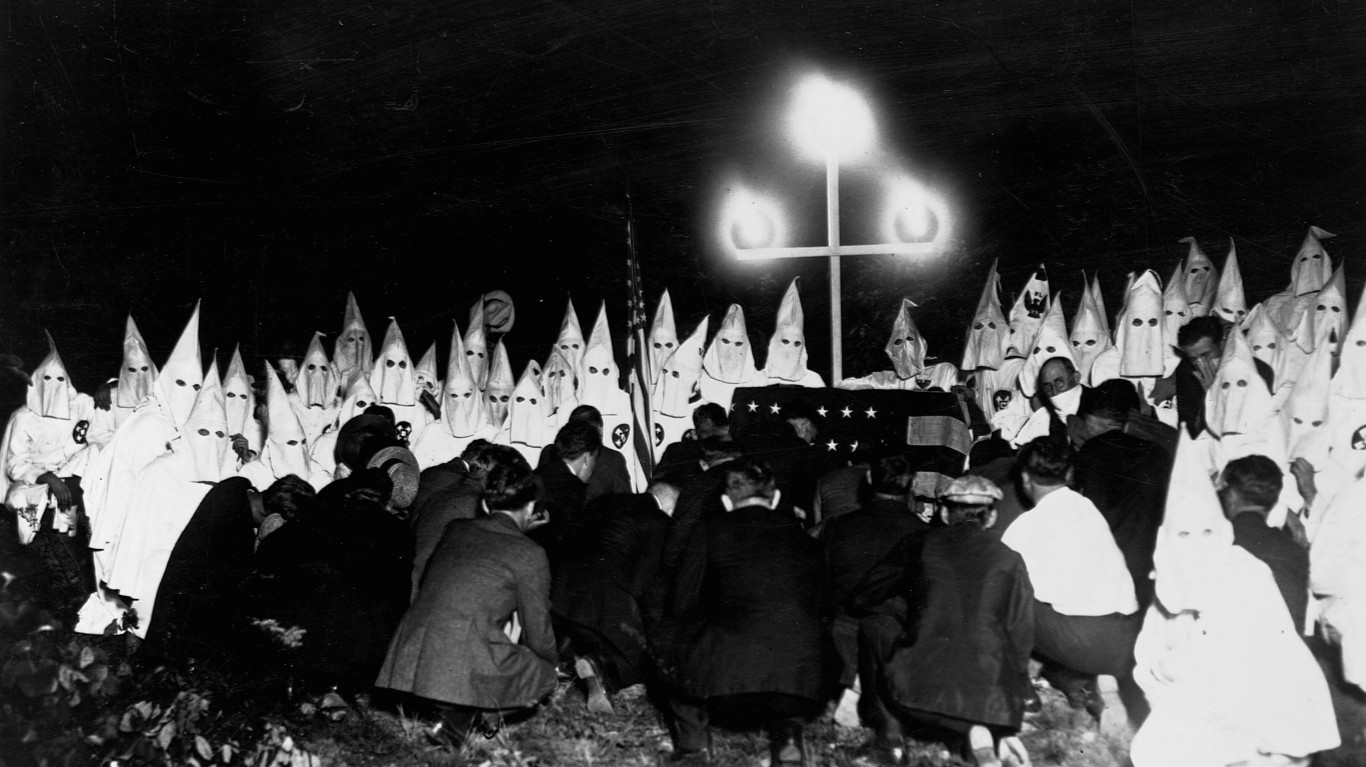
10. Ku Klux Klan
> Founded: 1866
> Mission: Advocates white supremacy
> Well-known members: Robert Byrd, David Duke, Hugo Black
The Ku Klux Klan was founded by Confederate Army officer Nathan Bedford Forrest and was violently anti-African American, anti-immigrant, and anti-Catholic. After dying out in the 1870s, it was reborn during the Prohibition era and had another resurgence after World War II in its opposition to civil rights. Though its power is greatly diminished, the KKK remains a formidable hate group in the United States.
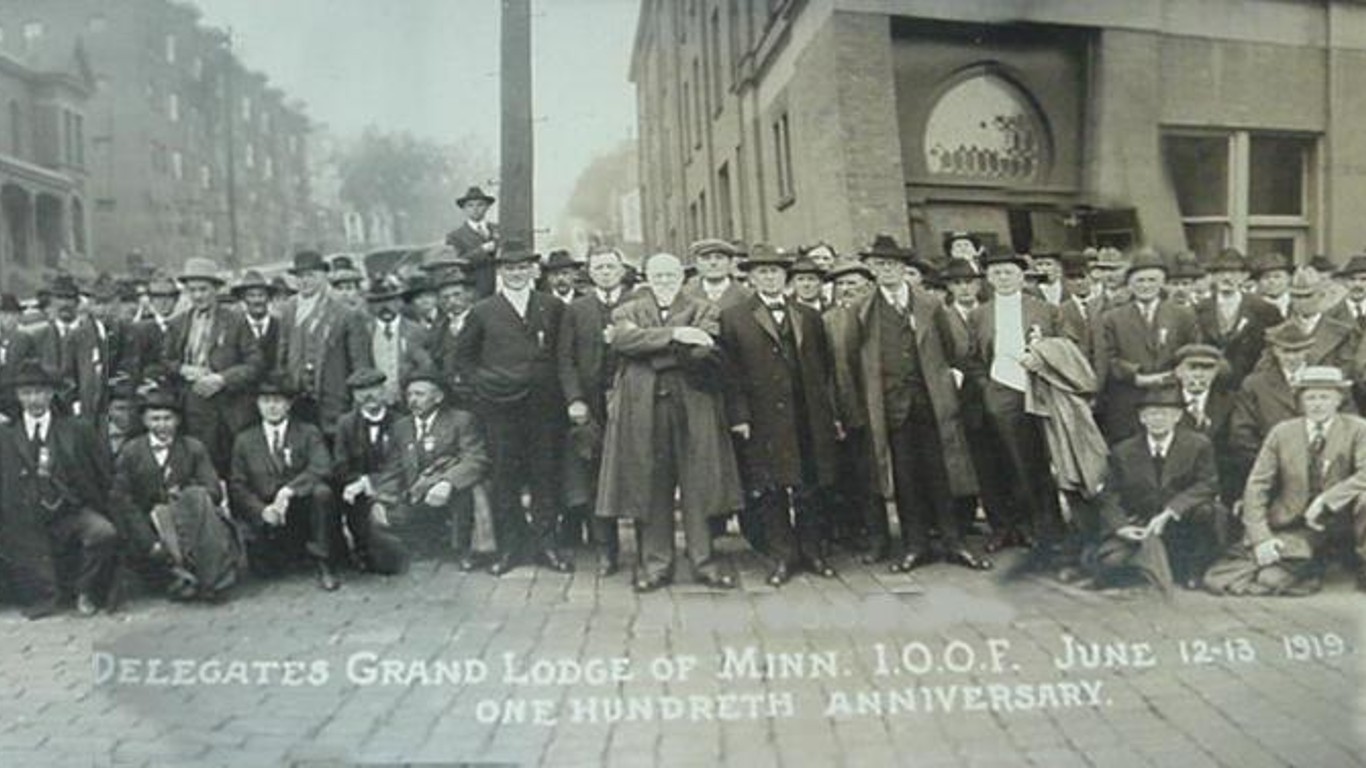
11. Independent Order of Odd Fellows
> Founded: 1819
> Mission: Aiding those in need
> Well-known members: Leland Stanford, Ulysses S. Grant, Charles Lindbergh, FDR, Rutherford B. Hayes
The Independent Order of Odd Fellows believes that friendship, love, and truth are basic principles. The group originated in England, and the U.S. chapter was created in the early part of the 19th century in Baltimore. Odd Fellows was one of the first fraternal organizations to open up membership to women, who are called Rebekahs.
[in-text-ad]
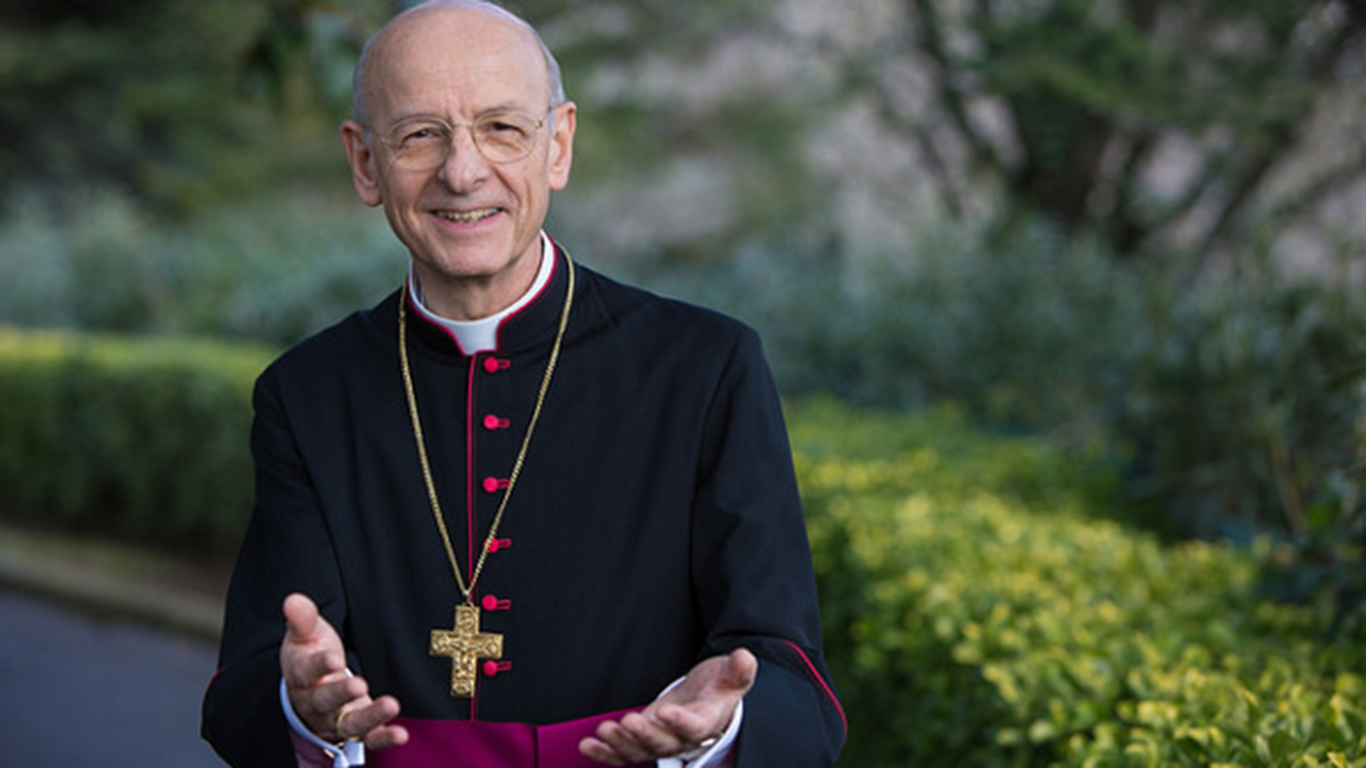
12. Opus Dei
> Founded: 1928
> Mission: Working for love, finding God
> Well-known members: St. Josemaría Escrivá
Opus Dei is a Catholic group with 80,000 clergy and lay members who claim to find God in everyday life. In recent years, the group has had to fend off accusations that it is a cult with a far-right agenda. That image was not helped by the fictional book and the movie “The Da Vinci Code,” which portrayed the group as having dangerous beliefs.
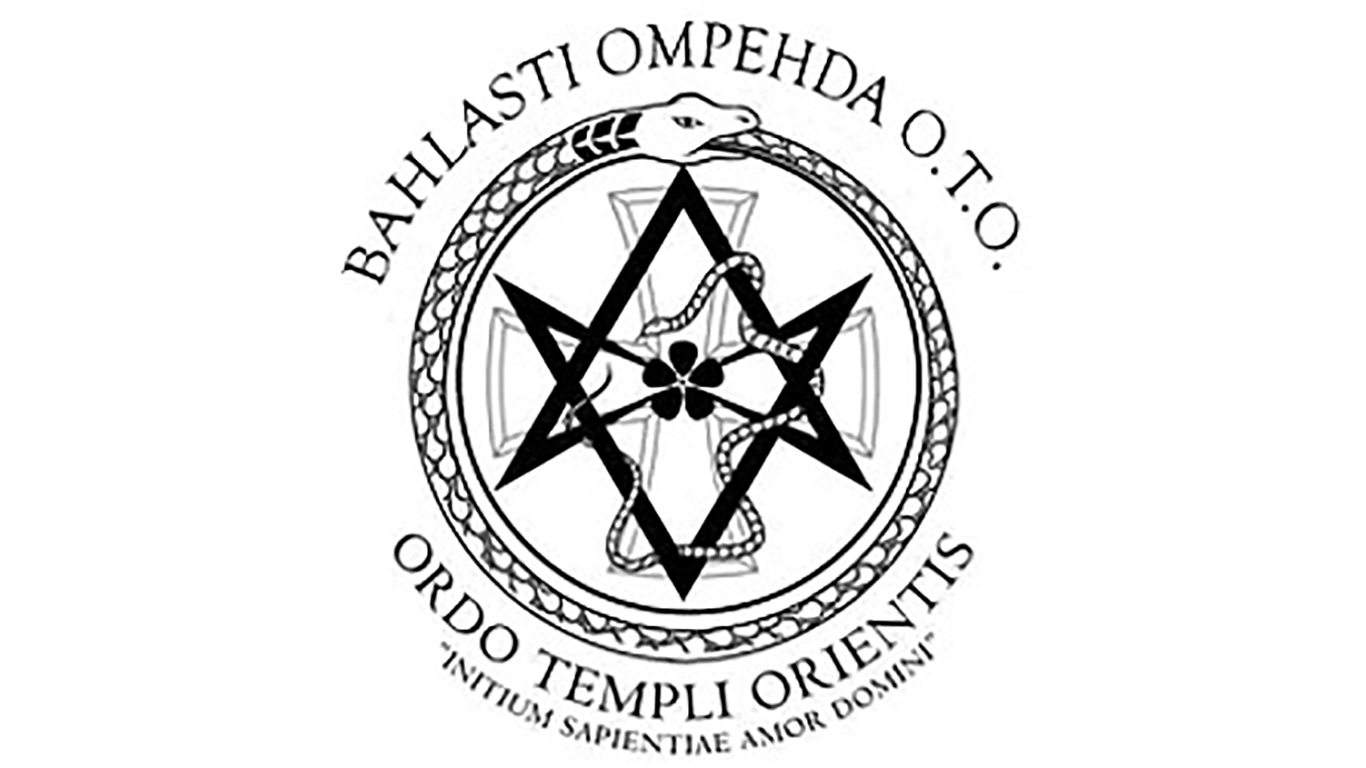
13. Ordo Templi Orientis
> Founded: Early 20th century
> Mission: Law of Thelema is guiding principle-love of individual above all others
> Well-known members: Aleister Crowley
Ordo Templi Orientis means “Order of the Temple of the East” and its main principle is “Do What Thou Wilt,” meaning the love of the individual supersedes anything. The most well-known member of this group is English occultist Aleister Crowley. He was so famous that the Beatles included him on the cover of the Sgt. Pepper Lonely Hearts Club Band album.
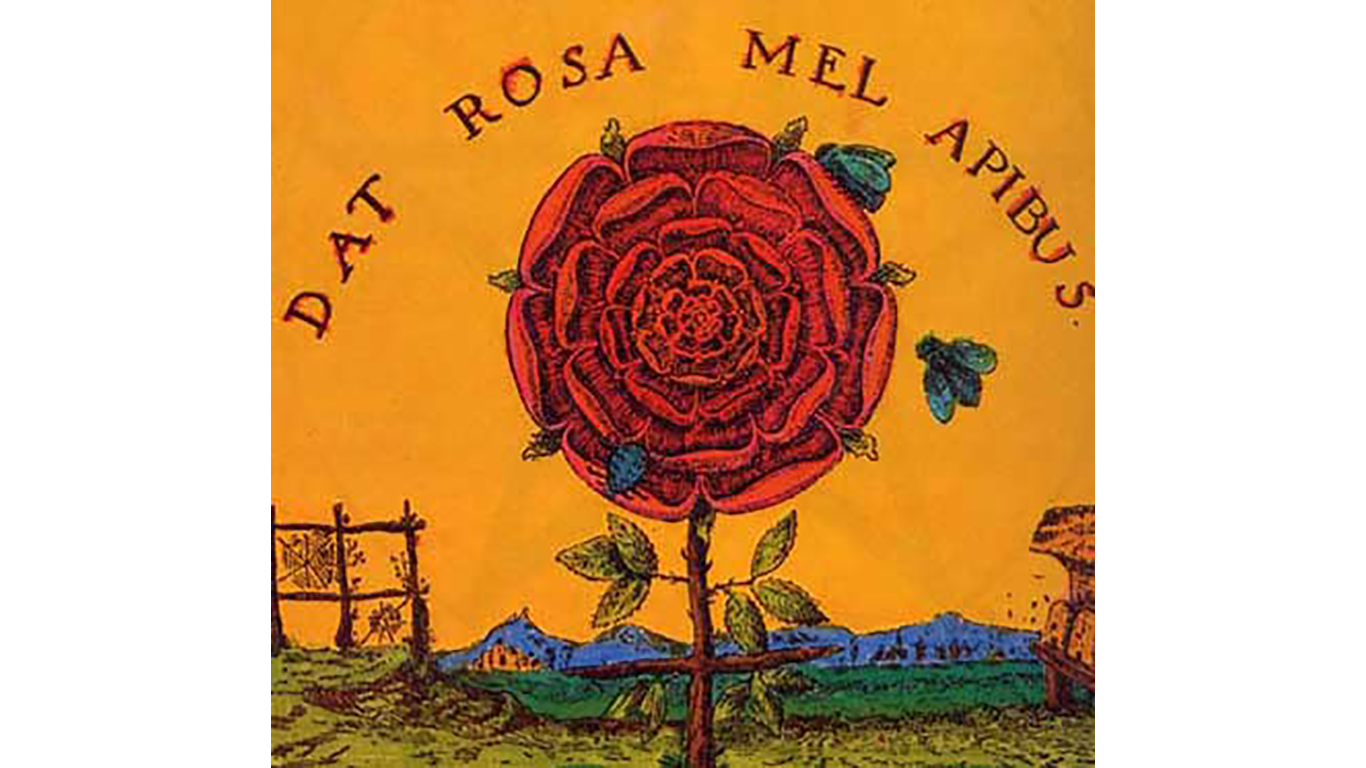
14. Rosicrucians
> Founded: Early 17th century
> Mission: Seekers of esoteric knowledge
> Well-known members: Isaac Newton, Thomas Paine, Benjamin Franklin, Walt Disney, Napoleon Bonaparte
The Rosicrucians were founded in the 17th century and claimed to possess wisdom passed on to them from ancient times. Today, they are composed of those who study metaphysical laws that govern the universe. Members are required to take online lessons once a week regarding particular ideas and experiments, and then they are asked to perform an experiment.

15. Royal Arcanum
> Founded: 1877
> Mission: Comforting distressed
> Well-known members: N/A
Royal Arcanum is a fraternal benefit group based in Massachusetts. It has more than 20,000 members. It believes in God and the brotherhood of man, conducting oneself with kindness and generosity, and comforting the distressed. One of its missions is to provide life insurance for the less affluent members of society.

16. Scroll and Key
> Founded: 1842
> Mission: Carrying on traditions of group
> Well-known members: Dean Acheson, Cyrus Vance, Sargent Shriver, Fareed Zakaria, Cole Porter
Yale University has many secret societies, and among the most prestigious is Scroll and Key, the second-oldest society at Yale. Scroll and Key is also believed to be the wealthiest of Yale’s secret societies. Membership is quite limited — only 15 rising seniors are admitted each year. The group became coed in 1989. This encountered some opposition from alumni until Scroll and Key member and then-Yale President A. Bartlett Giamatti, the former Major League Baseball commissioner, said he would not set foot in the club until women were admitted.
[in-text-ad]
17. Seven Society
> Founded: Early 20th century
> Mission: Philanthropy, funding to help improve University of Virginia
> Well-known members: Admiral Bull Halsey, CIA officer Frank Wisner
The Seven Society at the University of Virginia is cloaked in secrecy. Members’ identities aren’t revealed until after their death, when a wreath of black magnolias shaped like a “7” is put at the deceased’s grave. Despite the mystery, members are known for their gifts to the university. The society hands out an annual award of $7,000 to teaching assistants and it established a student loan program in the 1990s.
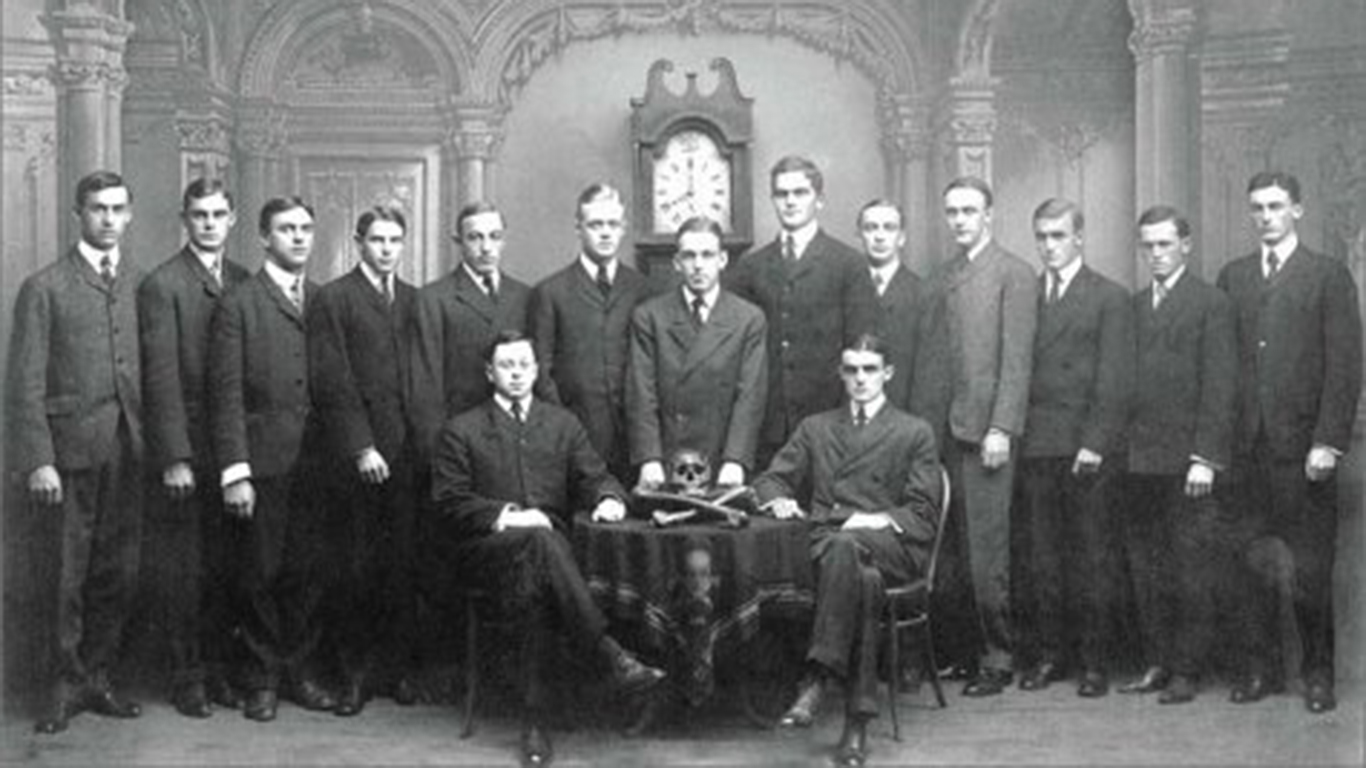
18. Skull and Bones
> Founded: 1832
> Mission: Said to play role in plot to dominate world
> Well-known members: George H.W. Bush, John Kerry, William F. Buckley, Paul Giamatti.
The oldest and most prestigious club at Yale University, Skull and Bones members include presidents, Wall Street bankers, chief justices, and the founder of the CIA. Among the wilder conspiracy theories associated with this club is that it is an offshoot of the Illuminati and is bent on world domination. In 2009, the club was sued by the descendants of Native American leader Geronimo who claimed members of Skull and Bones stole the skull of the Native American icon in 1918 and put it in a glass case. A federal judge dismissed the suit a year later.

19. The Loyal Order of Moose
> Founded: 1888
> Mission: Providing health benefits to members
> Well-known members: Charlie Chaplin, Bud Abbott, Lou Costello, James Stewart, Warren Harding
The Loyal Order of Moose is one of the larger fraternal organizations in the country with over one million members in all 50 states, Canada, Bermuda, and Great Britain. The organization’s website says it supports needy children and senior citizens and claims it contributes up to $100 million worth of community service per year.
[in-text-ad-2]

20. The National Grange of the Order of Patrons of Husbandry
> Founded: 1867
> Mission: Promote rural life
> Well-known members: Franklin Roosevelt, Nirvana bassist Krist Novoselic, Norman Rockwell
The National Grange of the Order of Patrons of Husbandry has been around for more than 140 years and has included women from the beginning. The agricultural organization’s motto is “in essentials, unity; in non-essentials, liberty; in all things, charity.” The organization emphasizes developing leadership skills among its younger members and maintains a nonpartisan stance in politics.
21. The United Ancient Order of Druids
> Founded: 1781
> Mission: Pursue individual spiritual paths
> Well-known members: Winston Churchill
The modern-day druids emerged from the druid revival of the late 18th century. Today’s druids do not claim to be direct descendants of the Celtic-era druids in Great Britain 2,000 years ago. Druids are encouraged to pursue their own spiritual paths in a personal way rather than a dogmatic approach. Membership is open to all men and women and there is a prescribed initiation process.
[in-text-ad]

22. United Order of the Golden Cross
> Founded: 1876
> Mission: Getting life insurance safely and economically
> Well-known members: N/A
The United Order of the Golden Cross aimed to get life insurance for all of its members as easily and inexpensively as possible. Dating back to the 19th century, the order was founded in England but has strong roots across the U.S. Its members have to give up drinking alcohol in order to join the group.

23. Veiled Prophet Organization
> Founded: 1878
> Mission: Celebrating St. Louis, Missouri
> Well-known members: St. Louis Police Commissioner John G. Priest, Monsanto Vice President Tom K. Smith
Following the Civil War, a Confederate soldier named Charles Slayback convinced local leaders in St. Louis to organize a secret society called the Veiled Prophet Organization. The group started the myth of the Veiled Prophet of Khorassan and organized a festival in his honor. It’s believed the celebration was meant to reinforce social structures and intimidate striking railroad workers in 1877. Members elected as the honorary Veiled Prophet of the year are typically kept secret and only two prophets have ever been made public.
100 Million Americans Are Missing This Crucial Retirement Tool
The thought of burdening your family with a financial disaster is most Americans’ nightmare. However, recent studies show that over 100 million Americans still don’t have proper life insurance in the event they pass away.
Life insurance can bring peace of mind – ensuring your loved ones are safeguarded against unforeseen expenses and debts. With premiums often lower than expected and a variety of plans tailored to different life stages and health conditions, securing a policy is more accessible than ever.
A quick, no-obligation quote can provide valuable insight into what’s available and what might best suit your family’s needs. Life insurance is a simple step you can take today to help secure peace of mind for your loved ones tomorrow.
Click here to learn how to get a quote in just a few minutes.
Thank you for reading! Have some feedback for us?
Contact the 24/7 Wall St. editorial team.
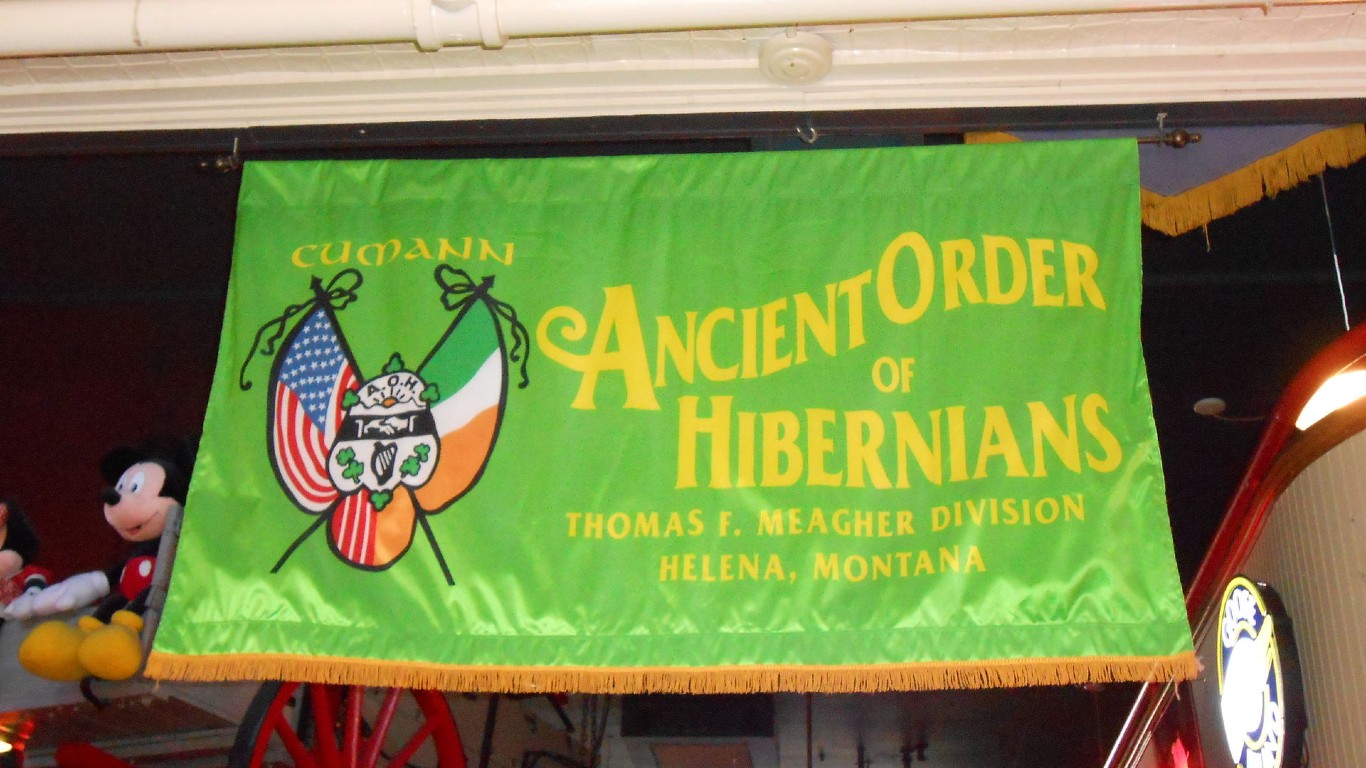
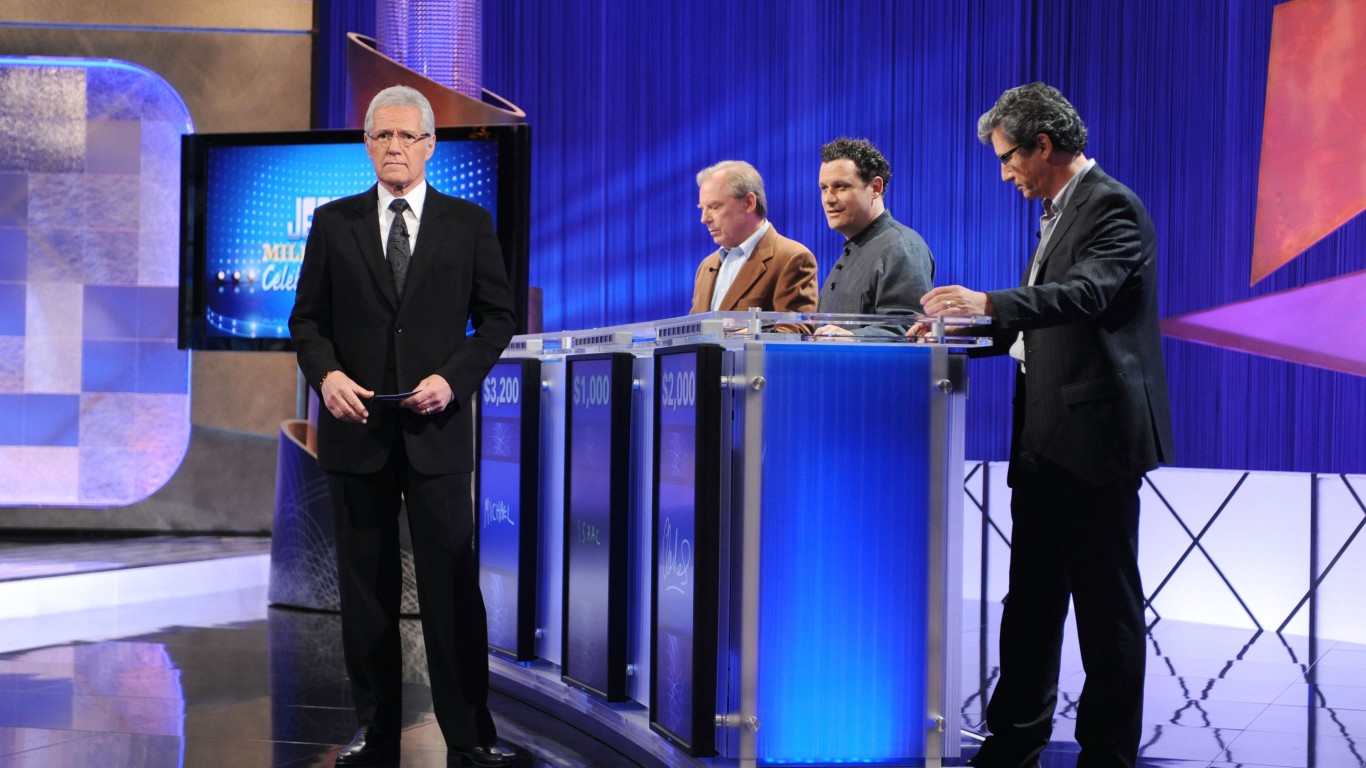 24/7 Wall St.
24/7 Wall St.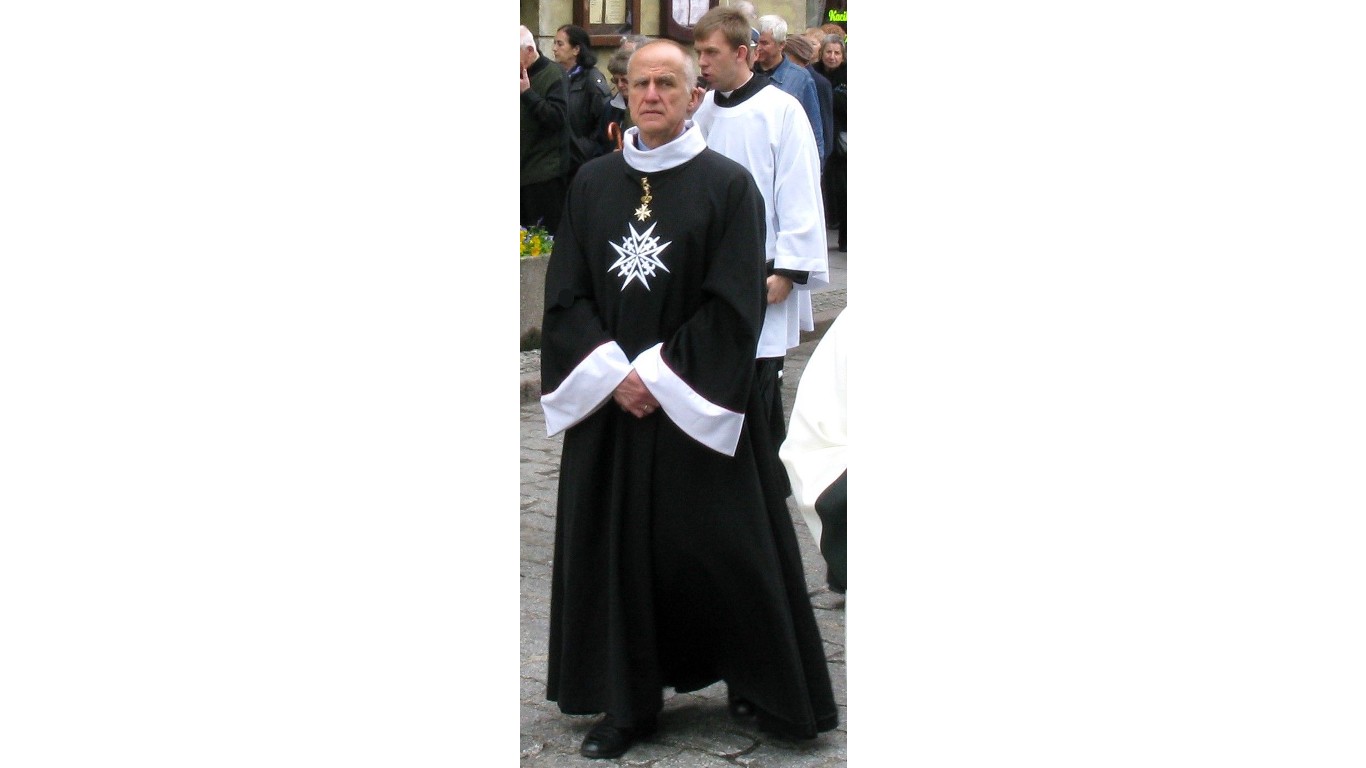
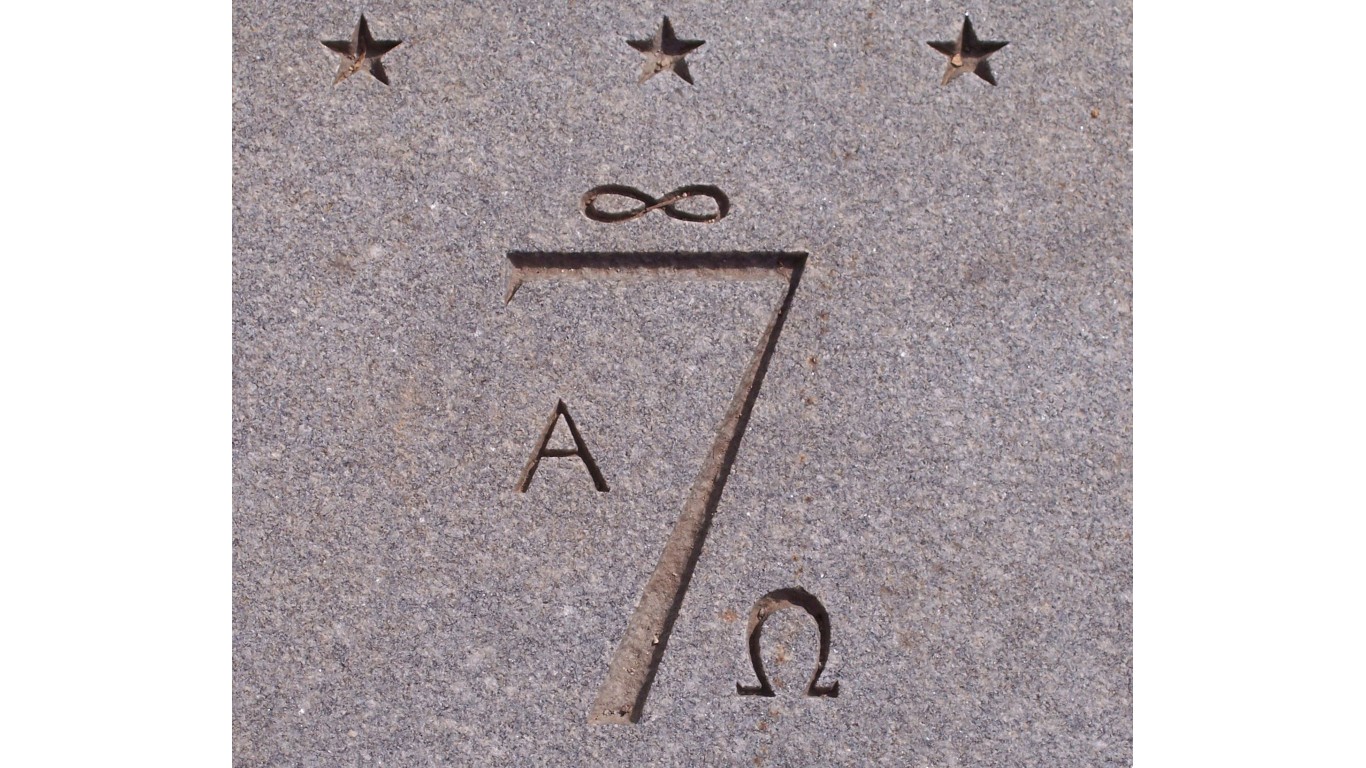
 24/7 Wall St.
24/7 Wall St.